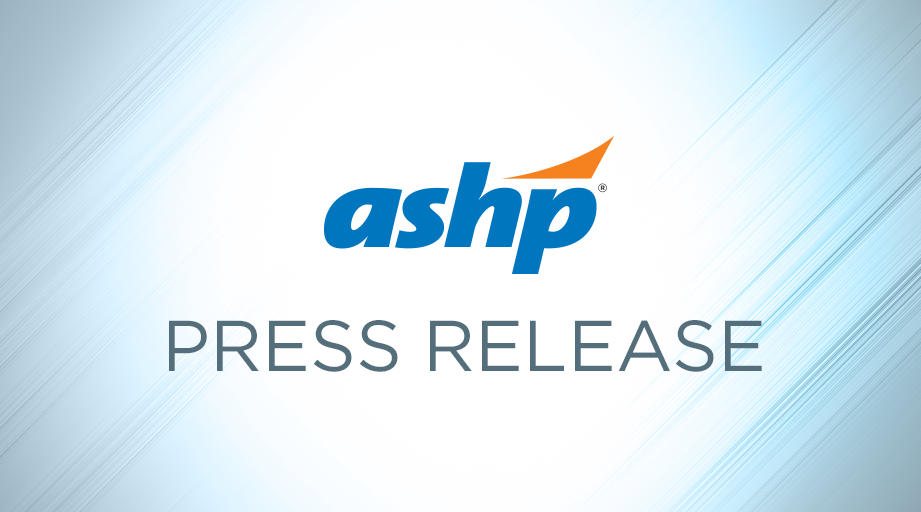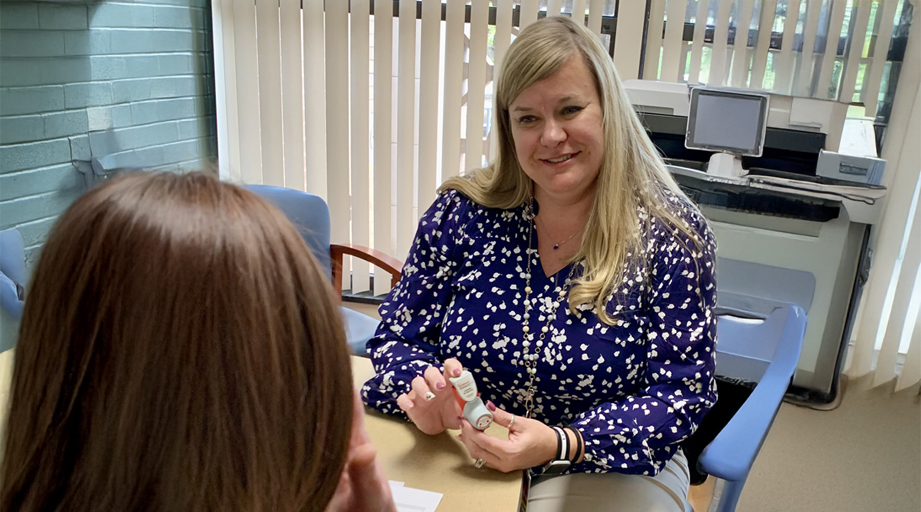
Pharmacists in Hospitals and Health Systems Continue to Enhance Focus on Management of Drug Therapy, Clinical Activities
Hospital and health-system pharmacies are increasingly using technology and expanding the duties of pharmacy technicians to improve medication safety and to allow pharmacists to increase their roles as direct patient care providers, according to a survey of hospital and health-system pharmacy directors by ASHP (American Society of Health-System Pharmacists) published in AJHP.
The ASHP National Survey of Pharmacy Practice in Hospital Settings: Operations and Technology – 2023 also shows health-system pharmacies are continuing to decentralize automated dispensing operations while deploying new technologies to ensure safety.
“Hospital and health systems are increasingly adopting technologies to improve medication safety and quality,” said ASHP CEO Paul W. Abramowitz, PharmD, ScD (Hon), FASHP. “By leveraging technology and supporting the expanded roles of pharmacy technicians, pharmacists can further engage as the medication specialists on the patient care team.”
The report includes an analysis of responses from a sample of pharmacy directors from 1,497 general and children’s hospitals in the United States.
The allocation of pharmacists’ time has changed over the last three years, with pharmacists spending more time on clinical activities. The survey shows hospital pharmacists independently prescribed medications — defined as the selection, initiation, monitoring, and adjustment of medication therapy — in 26.7% of hospitals in 2023, up from 21.1% in 2020 but below pandemic levels in 2021 and 2022.
Expanding Technician Roles
While traditional activities still dominate the work of pharmacy technicians — with nearly all hospital pharmacy directors reporting that technicians participate in purchasing and inventory management — more advanced roles are growing for these critical pharmacy team members. Advanced pharmacy technician roles include management of information technology, management of 340B Drug Pricing Programs, management of regulatory compliance, and supervision of other pharmacy technicians. Pharmacy directors see technicians devoting more of their time to non-traditional activities in the future, with time spent on these activities expected to more than double to over 19% in five years.
Analytics and Technology Improve Care
The use of advanced and basic analytics to improve outcomes and reduce the risk of adverse events is becoming more common in all hospitals, especially larger facilities, the report found.
Advanced analytics, such as artificial intelligence, machine learning, and predictive analytics, have been adopted by 5.7% of hospitals. Basic analytics, including use of data from smart pumps, clinical-decision support, or automation in dispensing and compounding, have been deployed by 87.3% of hospitals, while only 7% of facilities do not use any form of analytics.
Most hospitals use automated dispensing cabinets as the primary method of maintenance dose distribution, and machine-readable coding is used in 73.6% of hospitals to verify doses during dispensing in the pharmacy. The use of technology to assist sterile medication preparation is also increasing, with nearly two-thirds of hospitals reporting adopting these safety tools, up from 36% six years ago. Barcode scanning and image or video capture are among the technologies that can be used to ensure medications are prepared accurately.
Decentralizing Automated Dispensing
The survey shows the trend away from centralized dispensing is continuing. Health systems are moving to decentralized systems with automated dispensing technologies located in patient-care areas. Devices like automated dispensing cabinets and anesthesia workstations include safety features like locked pockets for medication storage and the ability to scan medication barcodes to ensure accuracy. A substantial majority of health systems have now adopted decentralized drug distribution, with 86% of hospitals using the approach in 2023. Decentralization has steadily risen each year since 2002 when 22% of hospitals adopted these technologies.
About ASHP
ASHP is the largest association of pharmacy professionals in the United States, representing 60,000 pharmacists, student pharmacists, and pharmacy technicians in all patient care settings, including hospitals, ambulatory clinics, and health-system community pharmacies. For over 80 years, ASHP has championed innovation in pharmacy practice, advanced education and professional development, and served as a steadfast advocate for members and patients. In addition, ASHP is the accrediting body for pharmacy residency and technician training programs and provides comprehensive resources to support pharmacy professionals through every stage of their careers. For more information, visit ashp.org and ASHP’s consumer website, SafeMedication.com.
# # #






